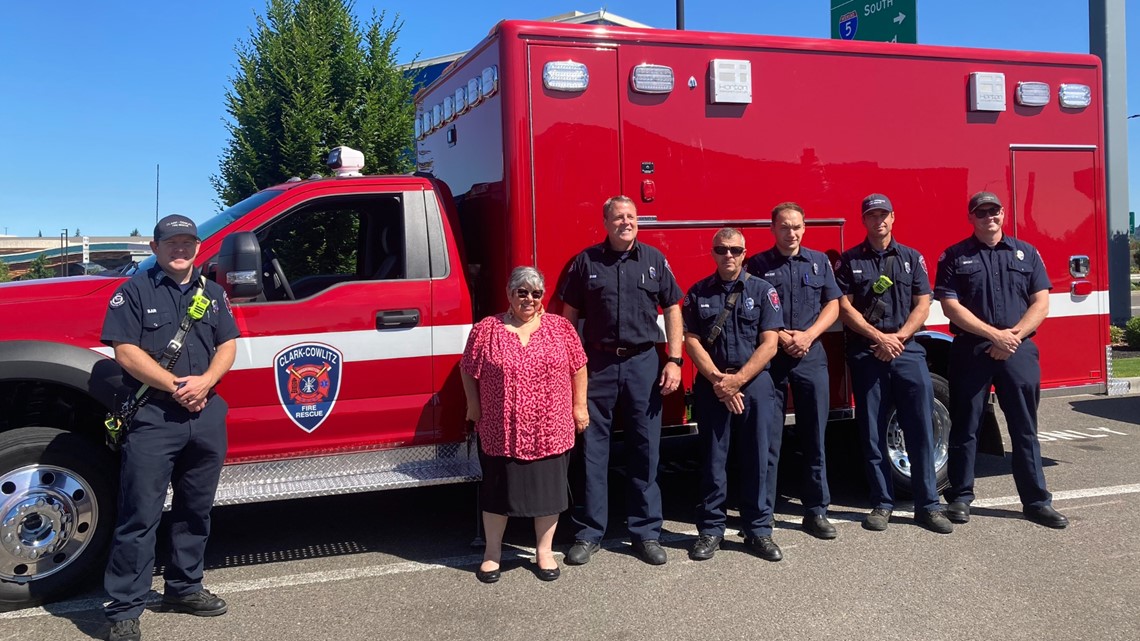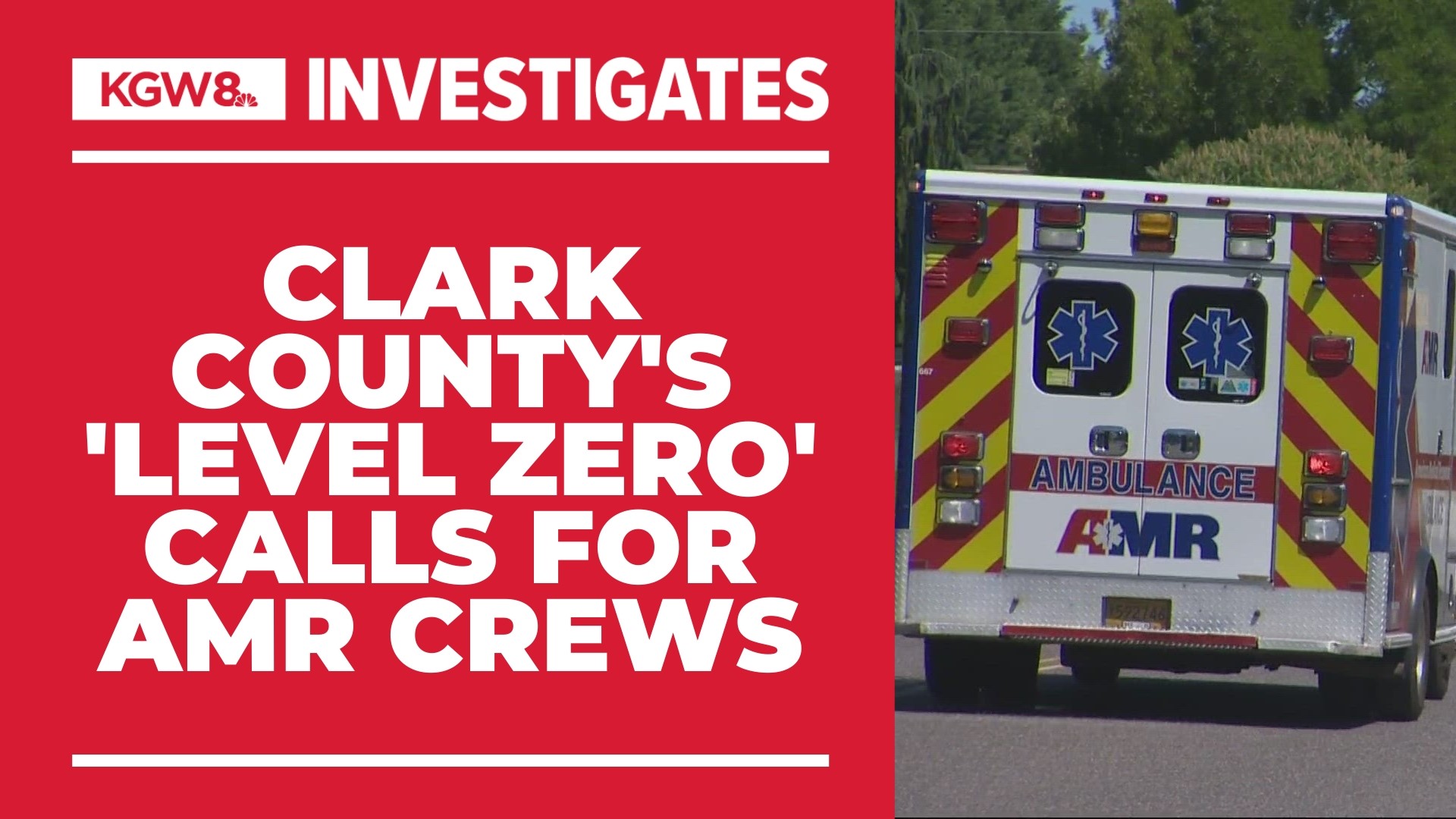CLARK COUNTY, Wash. — Clark County's emergency services agency has recorded 857 "Level Zero" incidents so far in 2023 — a code for when there are no ambulance crews available to respond when someone calls 911 in an emergency.
American Medical Response — the ambulance provider contracted to operate in Clark County, Clackamas County, Multnomah County and soon-to-be Washington County — has received criticism for lagging response times and gaps in emergency care.
The company has cited a national shortage of paramedics as reasoning for failed performance standards, feuding with Multnomah County over the county's two-paramedic requirement for ambulance crews.
While EMS service in Multnomah County represents the company's biggest challenge, public records show AMR has been unable to immediately respond to hundreds of emergency calls north of the Columbia river as well.
"I would say over the last couple of years, the rate of level zero has definitely had an uptick," said Kristan Maurer, fire chief for Clark County District 6. "You'll get emergency medical response from your fire agency, the holdup is waiting for that ambulance."
Clark Regional Emergency Services Agency reports 857 "Level Zero" incidents between Jan. 1, 2023 and June 20, 2023.
Dispatchers received 25,625 calls to 911 during this timeframe, meaning all AMR ambulances were busy and unable to respond on about 3.3% of 911 calls.
For comparison, Multnomah County data shows about 6,300 "Level Zero" incidents over the first six months of a year, representing about 10% of the 911 calls received.
AMR declined an interview request with KGW, and Clark County EMS Medical Program Director Dr. Lynn Wittwer could not be reached for comment.
Maurer said the frequency of "Level Zero" incidents can be frustrating and discouraging to firefighters, as their trucks aren't designed to transport patients or provide mobile emergency care.
“There's longer hospital wait times because hospitals are having a hard time staffing, so the ambulances get hung up at the hospitals," she said. "Then on the flip side, the ambulances are also having a hard time hiring paramedics."
She named another major problem — when people call 911 for non-emergencies or call multiple times.
It's something Vancouver resident Denise Timmons noted when discussing emergency response.
“Around here people call 911 just for stupid things like the skateboarders," Timmons said. "But [other times] I hear a lot about how [ambulances] should come faster."
Timmons said she can get angry when AMR ambulances are late to respond, because she believes every second matters.
“When I had my stroke and aneurysms on my brain, my doctor told me if I was a few minutes later I would’ve died," she said.
However, she said paramedics and emergency medical technicians need grace, too.
“We [have to] stop and understand there are other people that need help at that time, people don’t keep that in mind," Timmons said "There are only so many ambulances and fire trucks that can respond."
First responders in Clark County recently started tiering 911 calls with a new program called Nurse Navigation, and they’ve added Basic Life Support units for lower acuity calls.
Maurer said small changes like these can help.
"We need more paramedics to staff more ambulances, but that will only fix part of the problem," Maurer said. "We'll also need more nurses and hospital staff and hospital beds to get those patients off the ambulance so the ambulance can go back into service."
A growing concern over "Level Zero" calls has prompted some community and fire department leaders to find ways to innovate.
On Thursday, the Clark-Cowlitz Fire Rescue received an ambulance that fire department paramedics will operate.


The Cowlitz Indian Tribe, through the Cowlitz Tribal Foundation gifted the fire department $700,000 to buy and outfit two ambulances in November.
That gift, could rise to $800,000 if needed, according to CCFR Fire Chief John Nohr.
A voter-passed tax levy helped the department hire 25 new emergency responders, including six paramedics to work these ambulances, Nohr said.
The concept is, when AMR is at Level Zero, when AMR crews are delayed, or when all ambulances are concentrated elsewhere, Clark-Cowlitz Fire Rescue can respond to medical calls and transport when needed — something that's seen as being needed for the resident of CCFR and the Cowlitz Indian Reservation.
Maurer said fire crews are having to think creatively to fill in gaps left by delays in ambulance response.
"Until we can fix all the problems that are making level zero happen more, we have to take little bites and see if we can fix some of them," she said.

